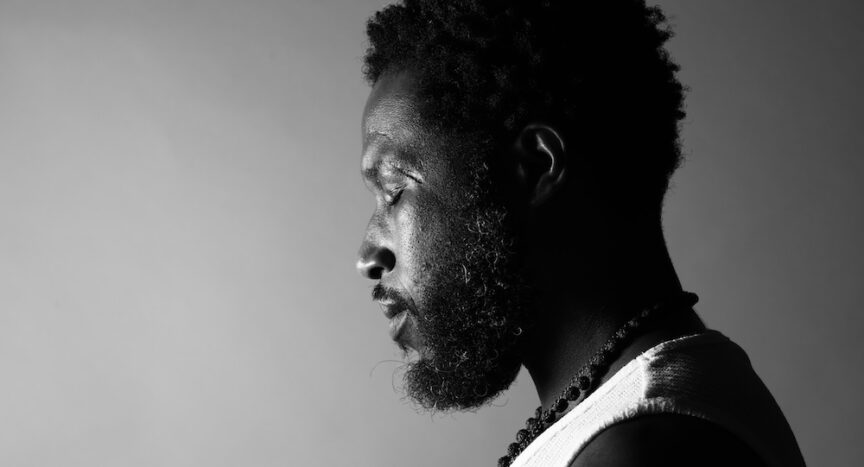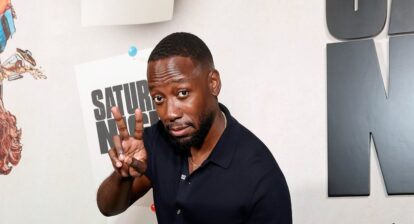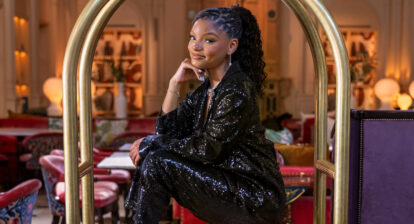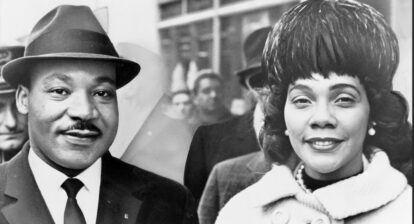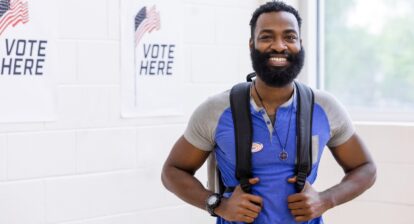Cory Henry has defied musical boundaries since his earliest days at the piano. A prodigy who began playing at just two years old, Henry’s talents were quickly apparent, culminating in a performance at the legendary Apollo Theater as a child. Fast forward to 2024, and his career has reached a new height: a GRAMMY nomination for Best Roots Gospel Album for his soul-stirring project Church. The nomination is a testament to Henry’s ability to channel the spirit of gospel into a fresh, innovative sound that resonates with audiences across generations.
His journey has been nothing short of extraordinary. Known for his virtuosic skills and emotional depth, Henry’s versatility as a multi-instrumentalist has seen him collaborate with some of music’s most iconic figures. He contributed to Kanye West’s Donda and brought his signature flair to Rosalía’s genre-bending work. Most recently, Henry wrapped a stint on tour with Stevie Wonder, an experience he describes as a dream come true. “He’s the greatest to me,” Henry shared with EBONY. “Seeing his creative vision up close was extraordinary. He’s always pushing boundaries, which is something I strive for too.”

Currently, Henry is balancing a rigorous schedule that includes a residency at New York’s Blue Note, where he performs two shows nightly. Staying centered amid this whirlwind is no small feat. “It was just pushups at first, but now I stretch, meditate and use this European tapping method I learned during the pandemic,” Henry revealed. “It’s all coming together. I’m the healthiest I’ve been since my teenage years, and it’s helping me perform at my best.”
Henry’s prolific nature and refusal to be confined by genre have made him a standout in today’s music landscape. From gospel to funk, jazz, and even hip-hop, his approach is rooted in authenticity and exploration. “I just try to follow the spirit,” he explained. Whether playing the Harpejji—an instrument inspired by Stevie Wonder—or producing in the studio until the early hours, Henry’s commitment to innovation is unwavering. “Music is God’s gift,” he said. “It’s changed my life.”
Henry’s career is decorated with numerous achievements. As a former member of the acclaimed ensemble Snarky Puppy, he earned three GRAMMY Awards, contributing to the group’s dynamic sound with his masterful organ and keyboard performances. In 2018, he embarked on a solo career, releasing Art of Love, followed by Something to Say in 2020, both showcasing his ability to blend genres seamlessly. His collaborations span a range of artists, including Bruce Springsteen, Boyz II Men, Kenny Garrett, and The Roots, highlighting his versatility and demand across the music industry.

In addition to his GRAMMY nominations, Henry’s work has been recognized with a Latin GRAMMY Award for Album of the Year for his contributions to Rosalía’s Motomami. His influence extends beyond performance; he has conducted songwriting workshops, including at Brown University, inspiring the next generation of musicians. His dedication to his craft and community underscores his status as a visionary artist committed to pushing the boundaries of contemporary music.
EBONY: You’ve been touring nonstop almost all year and with your current residency at the Blue Note, you are doing two shows a night. How do you stay centered?
Cory Henry: It was just pushups and now it’s stretching and meditation and just trying to, I do this European tapping method that I learned over a few years ago during the pandemic, and it is kind of all coming together. It helps me really feel like centered on performing better. It just helps me. So yeah, I try to do it every day, especially every performance day more specifically. I’m trying to really, really get healthy. This is probably the best I’ve been in my life since I was a teenager, in terms of being healthy.
You’re coming off tour – you just had the opportunity to tour with Stevie Wonder, and that’s a massive accomplishment for any musician, especially a Black musician. What was it like being in a space with such a prolific creative that you have a lot of respect for?
It was beautiful. I learned so much in a very short amount of time. I have wanted this opportunity since I was a kid.
When he called me, I answered the phone in shock. And plus, he was doing this [playful] voice. But he gave me the dates and I called my people, and we made it happen. I learned so much, man. I saw him play the songs that I love my entire life. Seeing his creative vision and how he just really wanted to be creative. He’s always pushing it and trying to just switch it up. He’s never dialing into one thing. And I love that because that’s kind of person I’ve been and always strive to be. So, seeing it up close and personal was extraordinary. He’s the greatest to me.
It was a great time. I took Stevie Wonder’s band into the studio and recorded this new holiday project that’s out now – It’s A Wonderful Holiday.
I’m guessing he also gave his blessing for his band to then go and work with you on this new project, this Christmas album.
I mean, yeah, technically and I’m trying to get him to play on still [laughs], so hopefully we can make that happen. But I told him, and he can’t wait to hear it. I can’t wait for him to hear it as well. We [the band] were in the studio every night till four in the morning. Every time we had an off day, we were in the studio going crazy.
You just mentioned that Stevie’s always refining himself, he’s always pushing himself to be more innovative. What do you take from the legends and the people who’ve inspired you, and how have you also passed that on to the next generation that you are supporting?
Oh, man. All of my heroes seem to never seemed to want to stop. All my heroes never wanted to stop being forward and being themselves authentically. The more they found themselves, I feel like the better the music got in most scenarios that I can think of. They were getting the first instruments. Stevie was one of the first people to record a mug synthesizer or a programming drum machine. So, I take that direction. I’ve been inspired by Stevie to learn how to play this instrument called the Harpejji, it looks like a skateboard. The one I play has 16 strings on it. You play it vertically like a guitar, but it looks like a guitar and piano, but it looks more like a skateboard guitar. I saw Stevie play this thing and he plays it all the time. ‘I was like, I got to get into this.’ And I devoted myself to learning this instrument. Something I never even thought I would try to learn through my love of the guitar, but it has these piano principles that I can incorporate from my knowledge of piano to play the instrument. And it’s been so eye-opening in terms of how I create music now. And that will be even more the more I integrate it with what I do touring and daily. It changed how I make music.
Now with all the years you’ve accumulated making music, many people are inspired by you. How do you pass knowledge or inspiration to a new generation?
I’ve been really blessed to be in this position and to be able to pass it on is kind of like a blessing at this point. I just came back from Berklee [School of Music], and I did about two days there. Talking to the students, going around to different choir ensembles and jazz ensembles. It’s a blessing. I never thought I’d be doing it this way because I didn’t really go to college like that. But then I saw colleges are teaching my curriculum on YouTube.
It’s a blessing to be able to say that people care about music and still want to play because I still care about it. Music ain’t going anywhere. I feel like music is God’s gift. It’s one of the strongest things we have in our life, and it’s being so undervalued right now in so many different ways. So, the fact that it’s living and changed my life and the way that it has is a blessing. And I hope to continue to do that as long as I live.
In 2024, we see so many people fusing genres. Your career is known more for funk and jazz music, but you’ve also touched gospel, R&B, and hip-hop music. How do you position yourself between all those different genres?
Oh man, I don’t really know. I just try to follow the spirit. I work so much on developing a sound and some of the people that I love, Billy Preston is probably up there top in terms of a musician who was able to take the sound and play with the Beatles and then play with Rolling Stones and Ray Charles and Aretha Franklin, it’s like all across the board. And he was doing things and inspiring people like Michael Jackson and Rick James. So, when I saw that, it inspired me to do that in my way. I think church and having the backbone of church being musical overexpression, was one of the greatest things. It’s like college, but it’s way better in terms of how people get information.
Then Rosalia called me. She’s like, ‘dude’, I was like, that’s crazy. But the fact that there’s so many people that have been calling me to just be myself, that’s a blessing. And I tell every musician to be on that wave and find self-expression that you love that will touch the world.
When considering the future, what are some of the projects or aspirations that you have?
My next transition is mainly into movies, a little bit of acting, but mainly film scoring and TV and commercial music. Also, if I would’ve known that the gaming industry would be as it is [in relation to music scoring], I probably would’ve never toured [laughs]. I still love to play games on my off time. I’m streaming on Twitch.
Well, put us onto the Twitch thing. What’s going on with that?
I go on my Twitch stream and depending on the day, it’s like a concert for three, four hours because I really just be up there just hanging out. I could be playing any instrument, learning music in front of people, producing music in front of people, cutting vocals.
You are very open about supporting your community, do you have any plans to expand on that?
I have a foundation called Live and Love Foundation and it’s geared towards helping underprivileged youth. It’s based in New York and LA. In LA we raised funds and did donations to cities in Watts and Inglewood. In New York, we hosted food drives, sent computers to schools and raised money for money different charities.
What was the catalyst for starting the foundation?
A few scenarios really stuck with me, and I thought, “That’s messed up.” I also know people affected by similar situations, so it hit close to home. When I first moved to LA, someone took clothes out of my truck, and I thought, “This is wild.” Skid Row and the surrounding area were especially eye-opening—it was overwhelming to see what was happening there. I wasn’t sure what I could do, but I knew I wanted to help. It wasn’t just about singing a melody or showing up—it was about finding a way to make a real difference.

